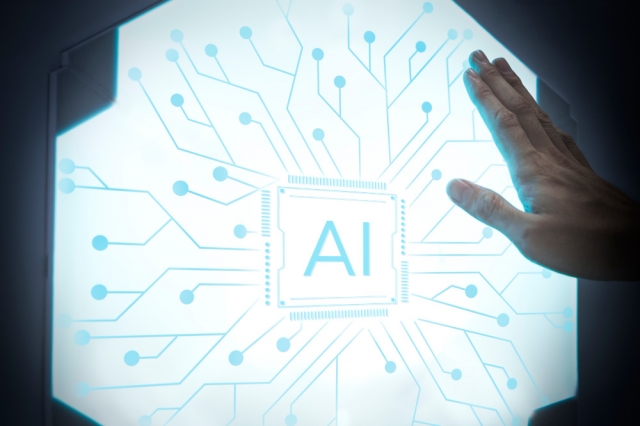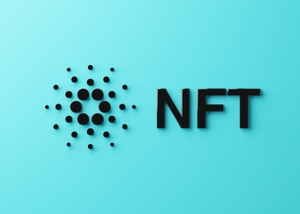AI has emerged as one of the most transformative technologies of the 21st century, reordering the architecture of industries and creating new opportunities worldwide. With a burgeoning population of tech-savvy professionals and rapidly expanding digital infrastructure, South Asia is in a position to become one of the key hubs for AI development and innovation. This paper discusses how to prepare for the job market in AI engineering for aspiring tech enthusiasts in countries like Pakistan.
The Rise of AI in South Asia
Unprecedented adoption of AI technologies in South Asia is taking place in broad sectors such as healthcare, agriculture, finance, and e-commerce. Similarly, governments and private sectors are investing a lot in AI research and development for the economic boom and solution of local challenges. In particular, digitization of services and integration of AI into areas like precision agriculture, traffic management, and smart cities are in vogue in Pakistan. This trend opens up immense career opportunities for those who wish to become an AI engineer and contribute to the region's technological advancements.
AI technologies are also being leveraged in the pursuit of solving uniquely South Asian challenges. For instance, AI-driven tools help farmers in agriculture with precision around the prediction of weather patterns, optimization of water usage, and improvement in crop yields. In healthcare, AI solutions have provided better diagnostics while leveraging telemedicine services to reach remote areas. Such progress underlines an urgent need for skilled AI engineers able to conceptualize, develop, and deploy such innovative solutions.
Skills Needed to Excel in AI Engineering
To thrive as an AI engineer in South Asia, professionals need a combination of technical expertise and practical experience. Here are the core skills and areas to focus on:
1. Programming and Software Development
Languages such as Python, Java, and R provide the development viewpoint for AI. Expertise in the frameworks that help in the building of machine learning models includes TensorFlow, PyTorch, and Keras. Knowledge in software engineering principles, such as version control and modular programming, is highly valuable.
2. Mathematics and Statistics
A strong foundation in linear algebra, calculus, and probability is critical for designing and implementing algorithms. These mathematical skills are essential for understanding how machine learning models function and improving their performance.
3. Data Handling and Analysis
AI engineers must be proficient in working with large datasets, cleaning and processing data, and using tools like SQL, Hadoop, and Spark. The ability to work with structured and unstructured data is crucial in industries like finance and healthcare, where data-driven decision-making is key.
4. Deep Learning and Neural Networks
Understanding how neural networks operate and having experience with deep learning architectures is crucial for modern AI applications such as natural language processing (NLP), computer vision, and autonomous systems. Engineers should also explore concepts like reinforcement learning and generative models.
5. Soft Skills and Problem-Solving
As AI engineers often work in teams and interact with non-technical stakeholders, communication and problem-solving abilities are as vital as technical know-how. The ability to explain complex AI concepts in simple terms can be a significant advantage in collaborative projects.
Education and Certifications
To become an AI engineer, one should have a relevant bachelor's degree in areas like computer science, engineering, or any other relevant discipline. Quite a number of universities, especially in Pakistan and generally in South Asian countries, are now introducing special AI programs and degrees. For example, top-notch universities in Pakistan, such as NUST and FAST, offer degrees in both AI and data science, which equip students with all the necessary skills that this industry demands.
Apart from that, online certifications by platforms such as Coursera, edX, and specialized AI boot camps are other ways to bridge the gap between academic learning and industry requirements. More so, specific AI tool or framework certifications-like TensorFlow Developer or AWS Machine Learning-greatly improve employability.
Opportunities in Pakistan and Beyond
Pakistan is promising to become a key player in the AI ecosystem in South Asia. The IT sector in the country, coupled with initiatives like the National Artificial Intelligence Strategy and investment in technology startups, provides fertile ground for AI engineers. Companies are increasingly looking to hire AI professionals who can develop and deploy innovative solutions for local and global markets.
For instance, AI is being inculcated into Pakistan's financial sector to strengthen fraud detection and customer service. Fully leveraging the country's rising e-commerce platform, AI is engaged in personalized shopping experiences, inventory management, and logistics optimization. The healthcare industry also employs AI to improve the diagnostic correctness of treatment plans.
How to Stay Ahead in the AI Job Market
The AI field evolves rapidly, making continuous learning and adaptability critical for success. Here are some tips to stay ahead:
- Participate in various hackathons and projects: Experience gained during hackathons or contributing to open-source projects will pay dividends. Your collaboration on project ideas with practical applications in solving real-world problems will testify to your ability to put AI skills to work.
- Network with professionals: conferences, webinars, and local meetups. Listen to expert speakers and learn about emerging trends. Building relationships with mentors and peers will open doors to new opportunities.
- Stay Informed: Keep yourself updated by reading AI research papers, following industry blogs, and news. For example, knowing the latest breakthroughs in quantum computing or ethical AI will make you stand out as a forward-thinking professional.
- Focus on Practical Applications: Employers want applicants who can use AI to solve real-world problems. You can develop skills in predictive analytics, robotics, or NLP for an added advantage over competitors.
Conclusion
The future is really bright for AI engineering in South Asia, let alone Pakistan. It thus calls for professionals desirous of being relevant to acquire relevant skills, pursue useful certifications, and stay updated on trends in the industry. The rapid demand growth in the region opens huge opportunities for innovation and impact.
As AI continues to capture a larger space in South Asia, the region is not only getting ready to meet global standards, but also setting the stage for homegrown innovations that can solve local problems and make lives better. So, this is an exciting time to be a part of the AI revolution, and the right preparation will keep you at the forefront of this transformation.






